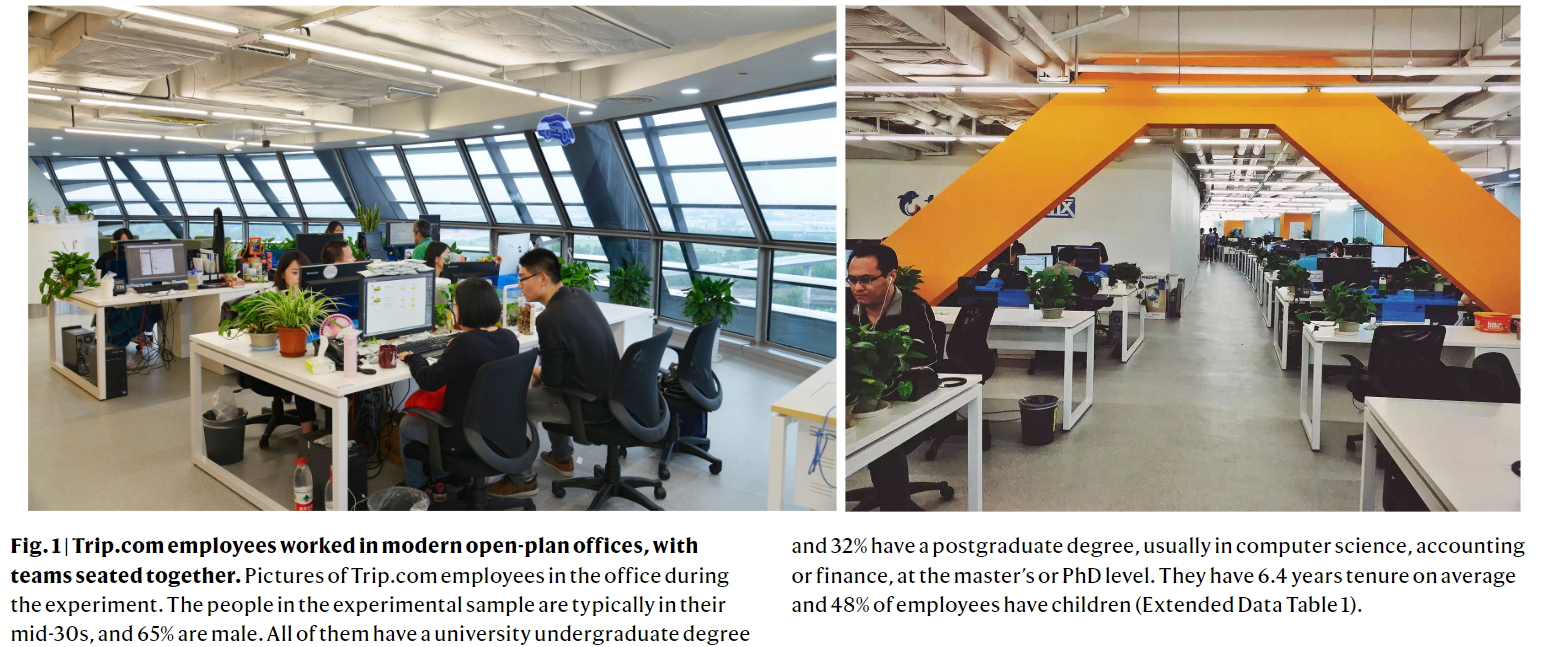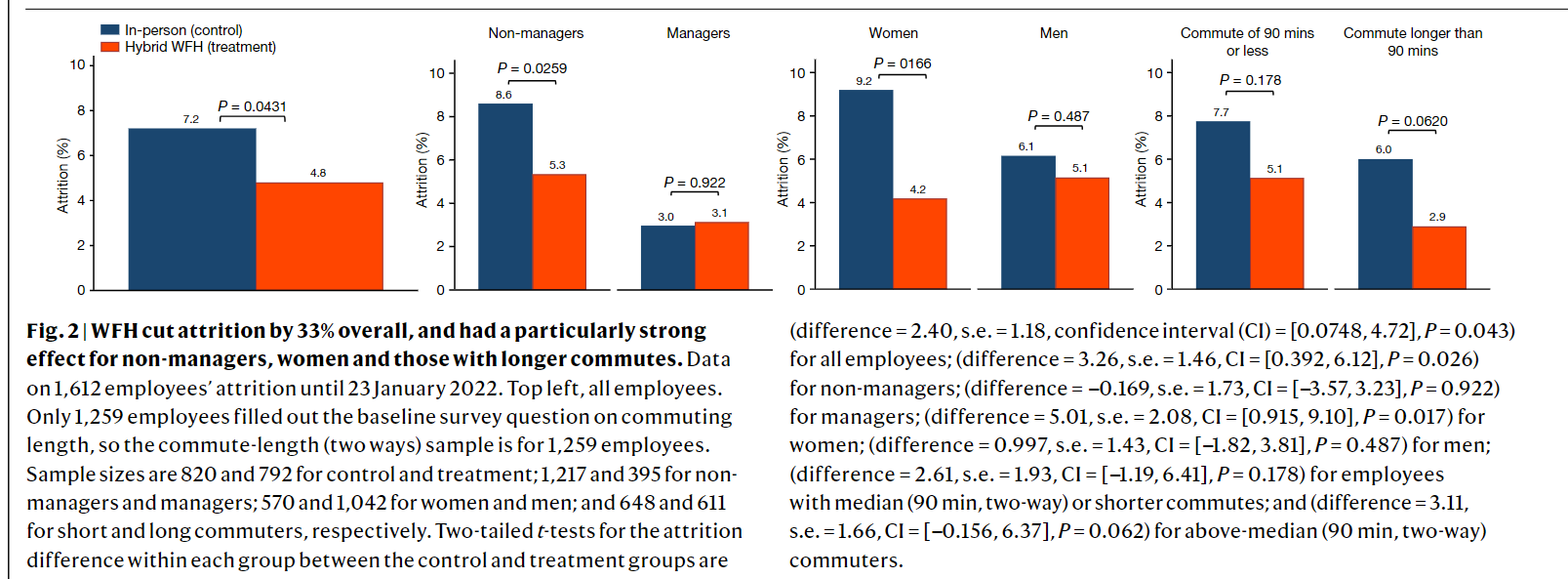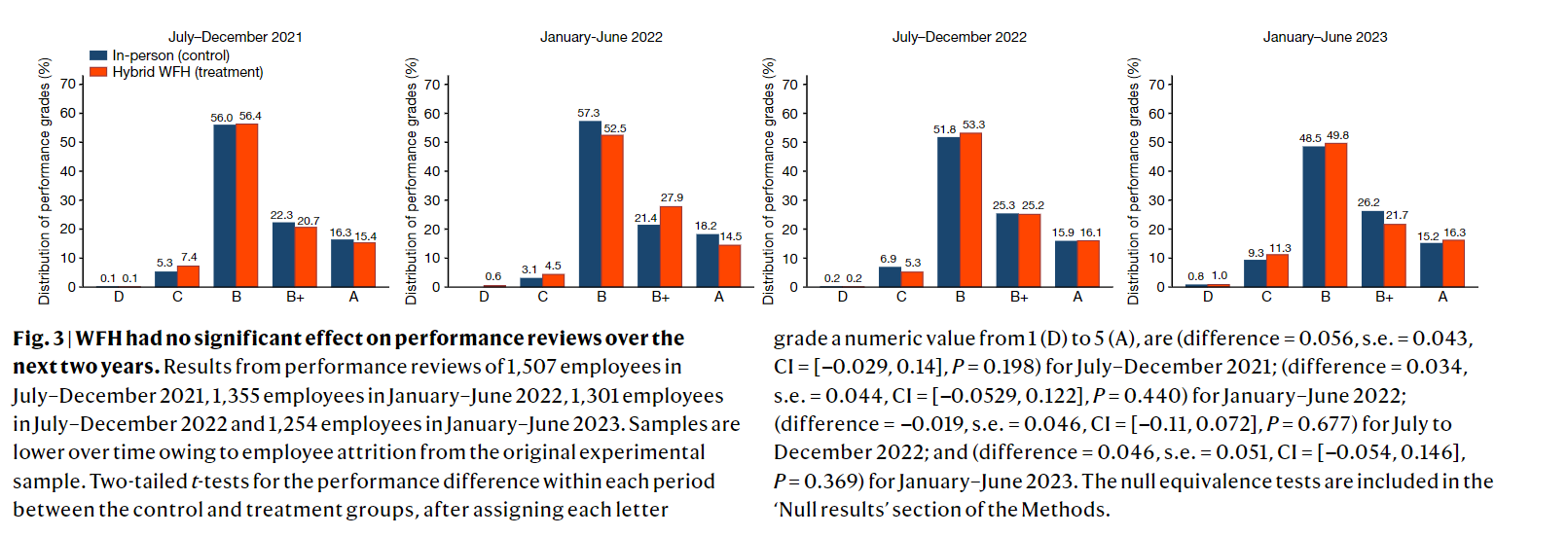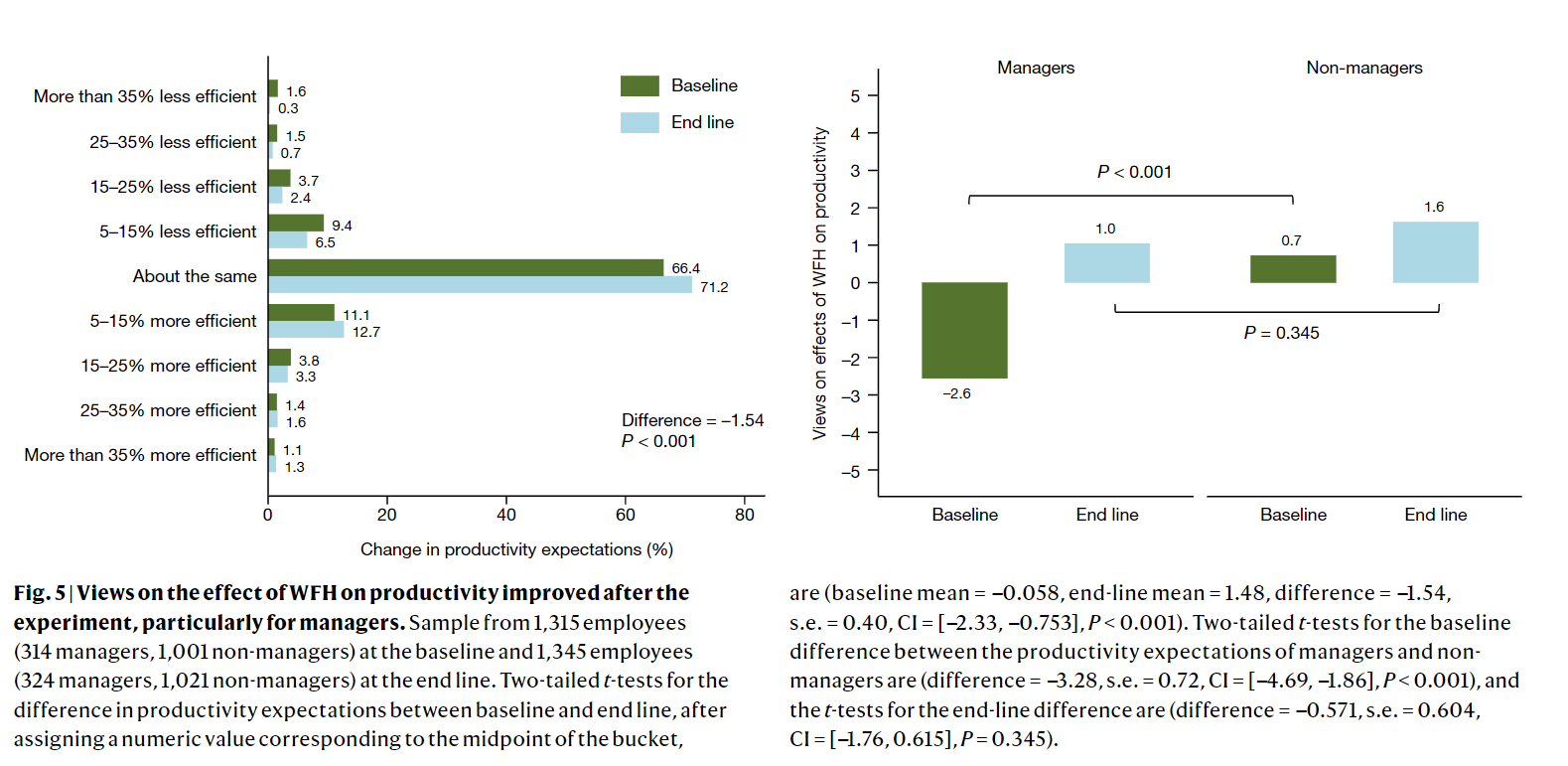Objective:
- Use a randomized control trial to examine the causal effect of a hybrid schedule in which employees are allowed to WFH two days per week
- Focus on university-graduate employees in software engineering, marketing, accounting and finance, whose activities are mainly creative team tasks
Case:
Methodology:
- Equivalence test
- Treatment regression
Data Source
- Survey: Trip.com
- Travel time: Weiss et al. (2018)
- Boundary: GADM
Findings:
- Hybrid WFH contributes to one-third reduction in attrition rate and improves satisfaction score

- The impacts on reduced attrition were significant for non-managerial employees, female employees and those with long commutes
- No evidence of a significant effect on employee’s performance reviews

- Managers tend to had more negative views, reporting that hybrid WFH would be likely to affect productivity by -2.6%, whereas non-managers had more positive views (+0.7%)
- After the experiment, the views of managers increased to 1.0%, converging towards non-manager’s views



Coding Reference:





